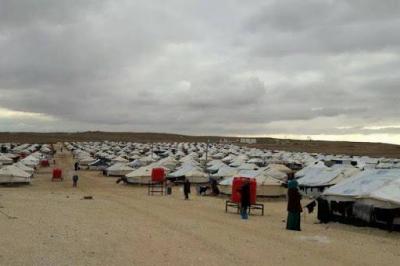The International Committee of the Red Cross (ICRC) stated on Wednesday that hundreds of children are being held in adult prisons in northeastern Syria, revealing their plight as prisoners for the first time. The committee explained that the children, most of whom are male, were transferred to prisons from the al-Hol camp, which is managed by Syrian Kurdish forces and houses around 60,000 people from over 60 countries. Most of these are women and children fleeing after the last pockets of the extremist group collapsed two years ago. Local authorities say that many of them are linked to fighters of the Islamic State organization.
Fabrizio Carboni, the ICRC's regional director in the Middle East, said in a press briefing, "Hundreds of children, most of them boys, some as young as 12 years old, are still held in adult prisons, which are simply not suitable for them." The committee conducted about 36 visits to detention facilities across Syria last year, being the only organization permitted to do so. They requested private talks with inmates regarding their treatment and conditions, but the confidential results of the interviews are only disclosed to the authorities.
An ICRC spokesperson mentioned that the committee visited detention facilities in northeastern Syria, an area dominated by Syrian Kurds, but declined to provide further details. The ICRC renewed its plea to countries to repatriate their nationals from the al-Hol camp and to commit to family reunification "in accordance with international law." Carboni, who has visited the al-Hol camp four times in the past two years, said, "I cannot bear to see many children behind barbed wire."
The Red Cross manages a field hospital and provides food and water on-site. Carboni noted that medical needs remain significant, especially with a rise in the number of children who died last year, including some preventable cases. The United Nations Children’s Fund (UNICEF) reported that eight children under the age of five died in the camp last August, half of them due to complications related to malnutrition. UNICEF added that the remaining deaths were due to dehydration from diarrhea, heart failure, internal bleeding, and hypoglycemia.




